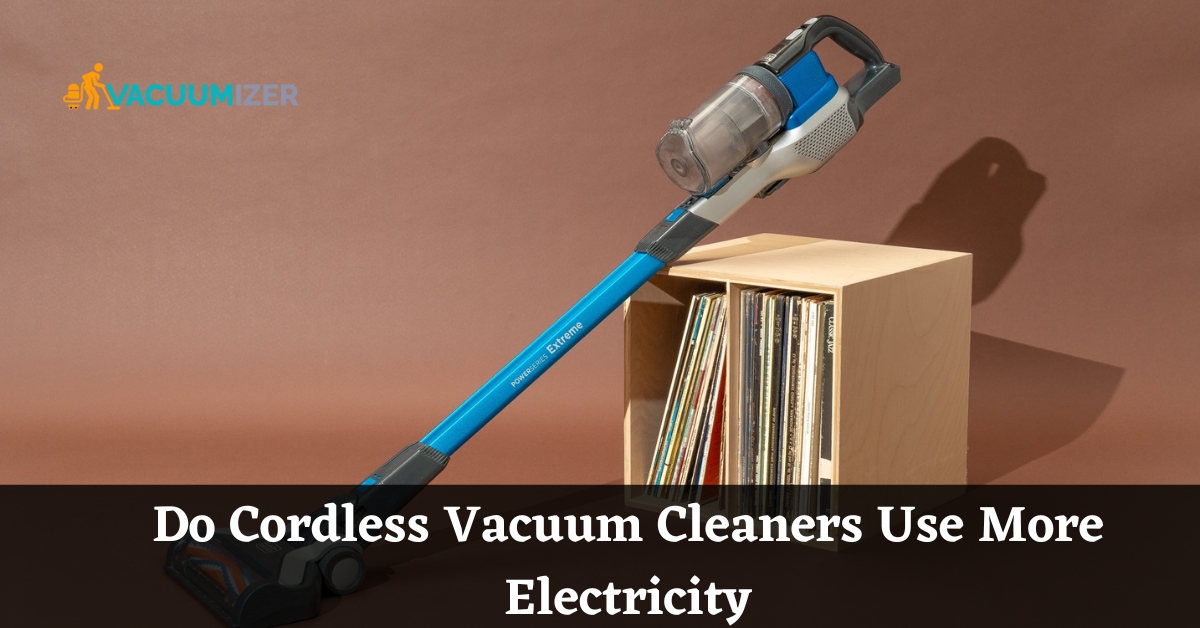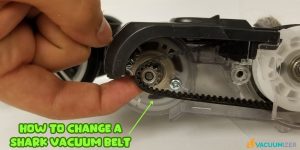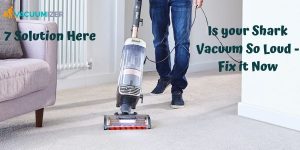In today’s world, where comfort is very important, portable vacuum cleaners have become very popular. Because they are easy to use and can be moved around. They make cleaning easy because they don’t have any lines to get in the way. But one question people often have is whether cordless vacuum cleaners use more electricity.
In this detailed guide, we’ll go over how cordless vacuum cleaners work and how much power they use. As well as will also provide you with lots of information. So, let’s start!
Frist of all, you will know about vacuum cleaner use lots of electricuity.
Table of Contents
Does a Vacuum Cleaner Use a Lot of Electricity?
The energy use of vacuum cleaners varies. The vacuum cleaner’s motor is a significant energy consumer. The motors in vacuum models now consume 500–3,000 watts of power. The typical machine consumes roughly 1,400 watts. Other factors also influence the energy consumption of vacuum cleaners. A thick rug is more difficult to vacuum than a wooden floor. It may need many attempts and extra time.
The filtration system and extra components like illumination and sensors impact power usage. The final factor to think about is how often you clean your vacuum. Filter blockage and a full bag decrease efficiency and raise power consumption. Consider how your vacuum can make other home systems more effective.
Next, you will know vacuum cleaner electricity consumption.
Vacuum Cleaner Electricity Consumption
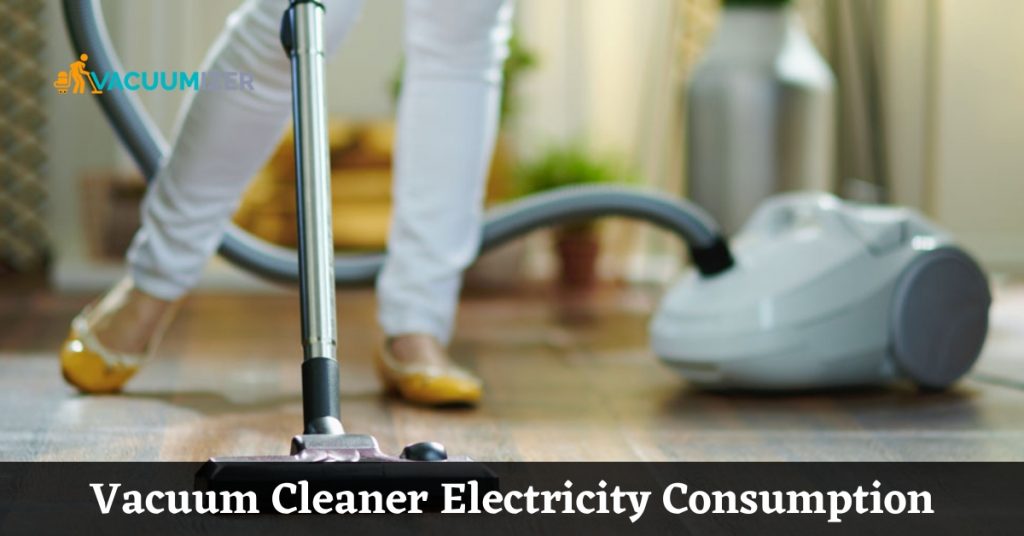
Vacuum cleaners have become a popular cleaning tool in modern households. The energy consumption of vacuum cleaners ranges from 500-3,000 watts. With the average model consuming roughly 1,400 watts. Energy consumption also depends on factors like the type of floor vacuumed. The filtration system and other components like illumination and sensors.
Next, you will know The comparison Of Electricity cords Vs cordless.
Electricity Consumption: Cordless vs. Corded
Now, let’s do a more in-depth review of how much electricity wireless and tethered vacuum cleaners use.
Vacuum cleaners with cords
Corded vacuum cleaners get power from the wall plug all the time. This ensures that the pulling power stays the same as you clean. But it can cause you to use more electricity, especially if you clean for a long time. The most important thing to know is that electric vacuums don’t have a “standby” mode; they are always plugged in.
Vacuum cleaners without cords or cordless
The electricity consumption of cordless vacuum cleaners is more nuanced. It depends on several things:
Battery Capacity
The more extensive a portable vacuum’s battery capacity, the longer it can run on a single charge. This can have a significant effect on how much power is used generally. Modern portable vacuums are made with bigger batteries that work better. So they can clean for longer.
However, I’m showing you how many loving times you can use it
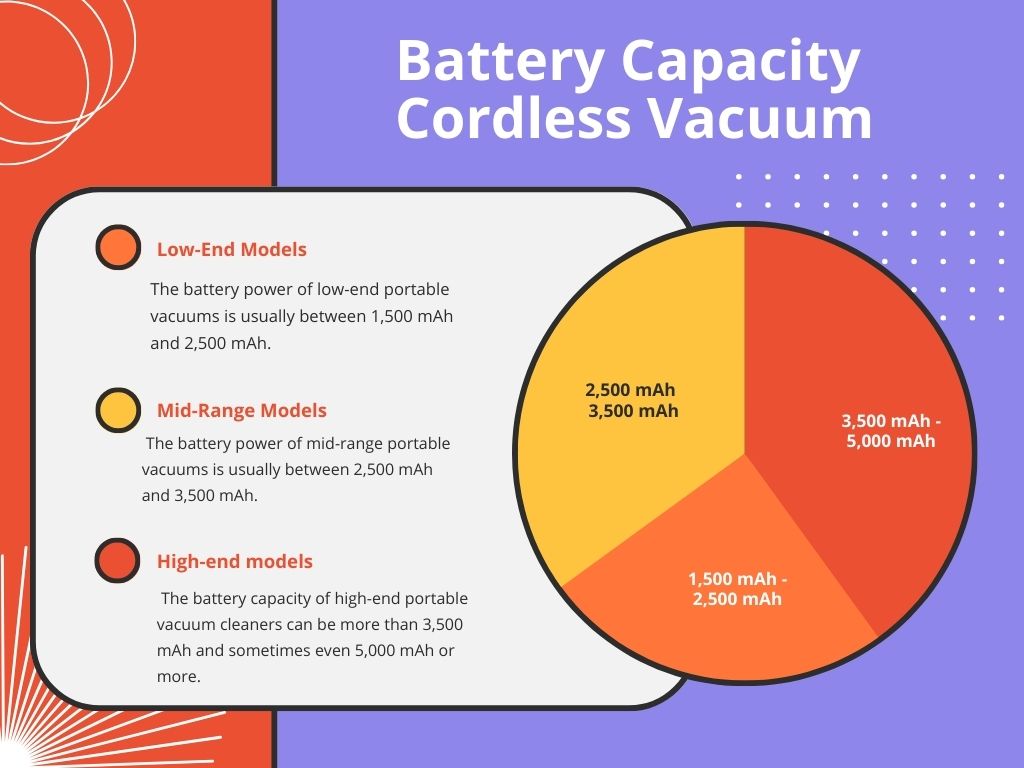
On average, a single charge can keep a portable vacuum running for about 20 to 60 minutes. But high-end models with bigger batteries and more efficient designs can sometimes run for 90 minutes or longer.
Patterns of Use
How often and for how long you use your wireless hoover cleaner have a big impact on how much electricity it uses. It will naturally use less electricity if you use it less often and for shorter amounts of time.
Health of the Battery
The state of the battery is also important. If you keep your battery in good shape, it will work better and use less power. Regular care, like cleaning the filters and ensure the battery is charged correctly, can make the battery last longer.
Charging Efficiency
How well the charging process works can affect the amount of power used. During the charging phase, you can waste less energy if you use good chargers and charge them in the right way.
Now you the Electricity Consumption of cords and cordless vacuums.
Next, you will know how many watts a vacuum cleaner uses per hour.
How Many Watts Does a Vacuum Cleaner Use Per Hour?
We aim to provide you with a table that details the various household items’ electricity use.
| Name | Electricity Consumption (Approx.) |
| AC | 900-2000 kWh (per month) |
| Refrigerator | 162 kWh (per month) |
| Fan | 120 kWh (per month) |
| Light | 300 kWh (per month) |
| TV | 220 kWh (per month) |
| Electric Oven | 45 kWh (per month) |
| Vacuum Cleaner | 43 kWh (per month) |
CORDLESS VS CORDED VACUUM CLEANER
A summary table comparing Cordless vs. Corded Vacuum Cleaners:
| Features | Cordless | Corded |
| Lighter in Weight | Yes | – |
| Smaller in Size | Yes | – |
| More Dust Capacity | – | Yes |
| Expensive | Yes | – |
What is the difference between Corded vs Cordless?
Suction Power
Vacuums need a powerful suction system to function. After all, that is their main duty. Let’s contrast the tethered and cordless vacuums’ ability to draw air.
Cordless Vacuums
The battery produces the suction power in a cordless vacuum. When a battery loses power and dies, your suction power will reduce. A lithium-ion cordless vacuum can offer constant suction power even when in use. Only top-tier cordless vacuums deliver performance comparable to plug-in vacuums. If you want a cordless stick vacuum, look for one with a high-voltage lithium battery.
Corded Vacuums
Corded vacuums connect to the electrical outlet in your house. These standard forms, in the opinion of many, are the best option for carpeted flooring. But, despite their generally dependable suction power. Stick vacuums with lithium batteries can use as. Vacuums with cords will have stronger suction than cordless models with non-lithium batteries.
Flexibility
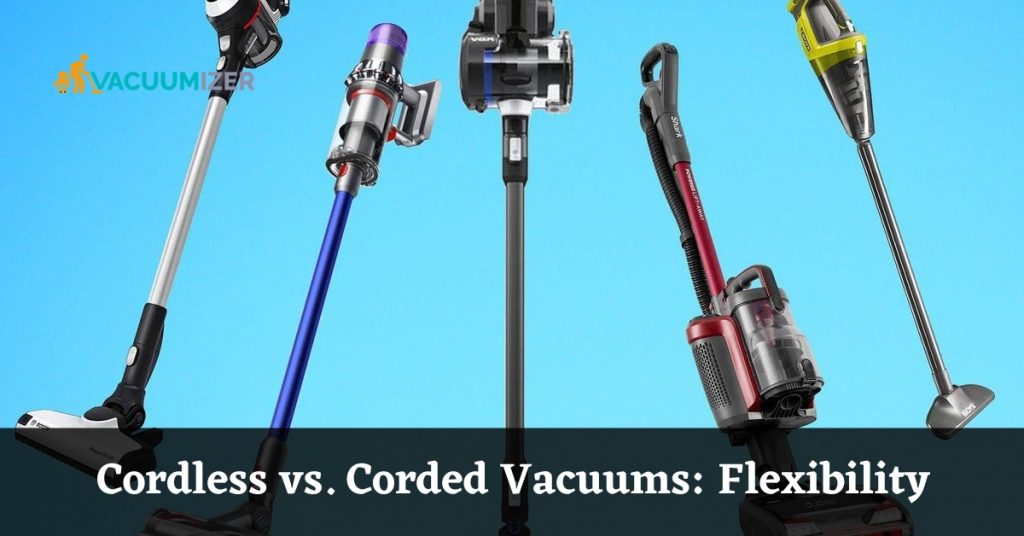
Cordless Vacuum Cleaners Use More Electricity
Cordless Vacuum Cleaners Use More Electricity
Contrasting corded and cordless vacuums. Another quality to take into account is flexibility. A flexible vacuum can provide more versatile cleaning.
Cordless Vacuums
In comparison to corded models, cordless vacuums are lightweight. Weighing on average under seven pounds. Additionally, their cord-free design makes them portable. A cordless vacuum can clean various surfaces, including
- Your automobile.
- Furniture,
- Stairs, and
- Deep recesses.
Many cordless vacuum types have a handheld vacuum attachment.
Corded Vacuums
Corded stick vacuums cannot compete with cordless stick vacuums’ versatility. They are by far bigger, heavier, and bulkier. Your alternatives for transportation constrain, and they become difficult to use. Also, the cord forces you to search. To keep the vacuum running, use a plug in each area.
Dust and Filter Capacity
Recognizing the variations between corded and cordless vacuum cleaners. It will aid you in choosing the best option for you.
Cordless Vacuums
When it comes to dust and filter capacity, cordless vacuums are usually higher in power than their corded counterparts. Cordless models can usually hold up to 0.5 liters of dust which is very helpful for you.
Corded Vacuums
At the same time, corded vacuums can only manage around 0.2 liters. Cordless vacuums also have the benefit of being able to fit with HEPA filters. It’s more effective at trapping dust and other allergens than traditional filters. This makes them a better option for those who suffer from allergies.
Then, you will know Some common question and answer.
FAQs on Cordless Vacuum Cleaners Use More Electricity
Why You Should Buy a Cordless Vacuum Cleaner
Cordless vacuums are super portable and great for quick cleaning in smaller spaces
How much power does a cordless vacuum use?
The range is 100–400 watts; nevertheless, they are all created with efficiency in mind.
What is the average lifespan of a cordless vacuum cleaner battery?
The battery life of a cordless vacuum can vary, but most last between 2 and 3 years if they are used often. Proper care, like charging and storing the battery the way the maker says, can help the battery last longer.
Video On Corded vs Cordless Vacuum Cleaners
conclusion
No, cordless vacuum cleaners do not use more electricity than corded models. It all depends on the model’s wattage and how long it uses. Both models have benefits and drawbacks. So research and consider which type best fits your needs. , the right choice will come down to your individual needs and preferences.
This way, you can be sure that you get the most value out of your vacuum cleaner. Hope you understand do cordless vacuum cleaners use more electricity in this article.

